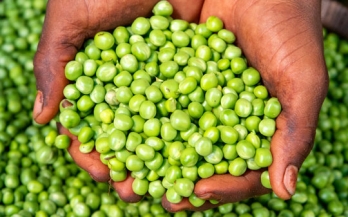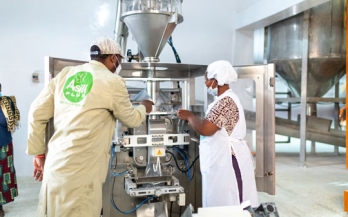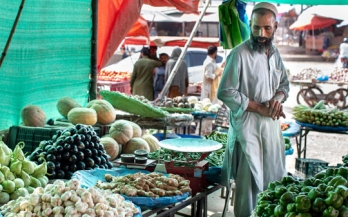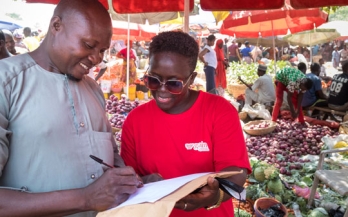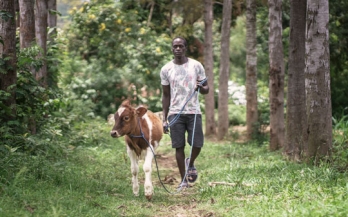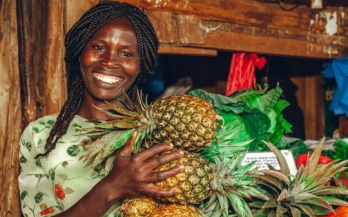In partnership with the Global Alliance for Improved Nutrition (GAIN) and Incofin Investment Management, the USAID Deputy Administrator Isobel Coleman and Assistant to the Administrator for the Bureau for Resilience and Food Security Dina Esposito announced the $6 million investment, in the Nutritious Foods Financing Facility (N3F).
Imagine a classroom filled with eager young minds, ready to embrace the world's opportunities. Now, picture these same children and adolescents, their potential stifled not by lack of ambition, but by an invisible adversary – hidden hunger.
Some countries encourage increased consumption of nutrient-rich foods to reduce the burden of diet-related diseases such as diabetes as one of their health goals—but they also subsidise foods that can contribute to those diseases, such as sugar, edible oil, or refined grains.
Food loss and waste is a major problem worldwide: it is estimated that 14% of all food produced globally is lost between harvest and retail, while 17% is wasted. For the most nutrient-dense foods, which tend to be highly perishable, levels are even higher, exceeding 20% for the category of fruits and vegetables.
In this blog, Anouk de Vries looks at some of the work underway to deliver on the aspirations set out in the 2021 Food System Summit - making the way we grow, deliver and consume food more sustainable and healthier.
This Interview Cruncher aims to shed light on the critical role of maternal nutrition, in promoting successful breastfeeding and optimal infant nourishment. And to do so, we have three prominent speakers joining us today.
Companies entering the lower-income consumer market often adapt existing products to meet lower-income consumers’ needs—in particular, redesigning the product to improve affordability. One way to do this is to simply replace more expensive ingredients with cheaper alternatives, or omit certain ingredients altogether.
This Interview Cruncher will highlight the crucial role of "food systems infrastructure" in enabling access to healthy and sustainable diets in low- and middle-income countries. It will aim to offer a clear definition of what food systems infrastructure entails and identifies gaps that still need to be addressed.
Recently I was on panel chaired by the UN Deputy Secretary General, Amina Mohamed, where I was asked three questions about the UN’s “Stocktaking Moment” two years after the UN Food Systems Summit of 2021 (UNFSS). Here are my answers to the questions.
Good nutrition has a hugely positive impact on health and other social goals, like educational attainment and work productivity – but the sector remains under-financed relative to its potential. How can we change this?
